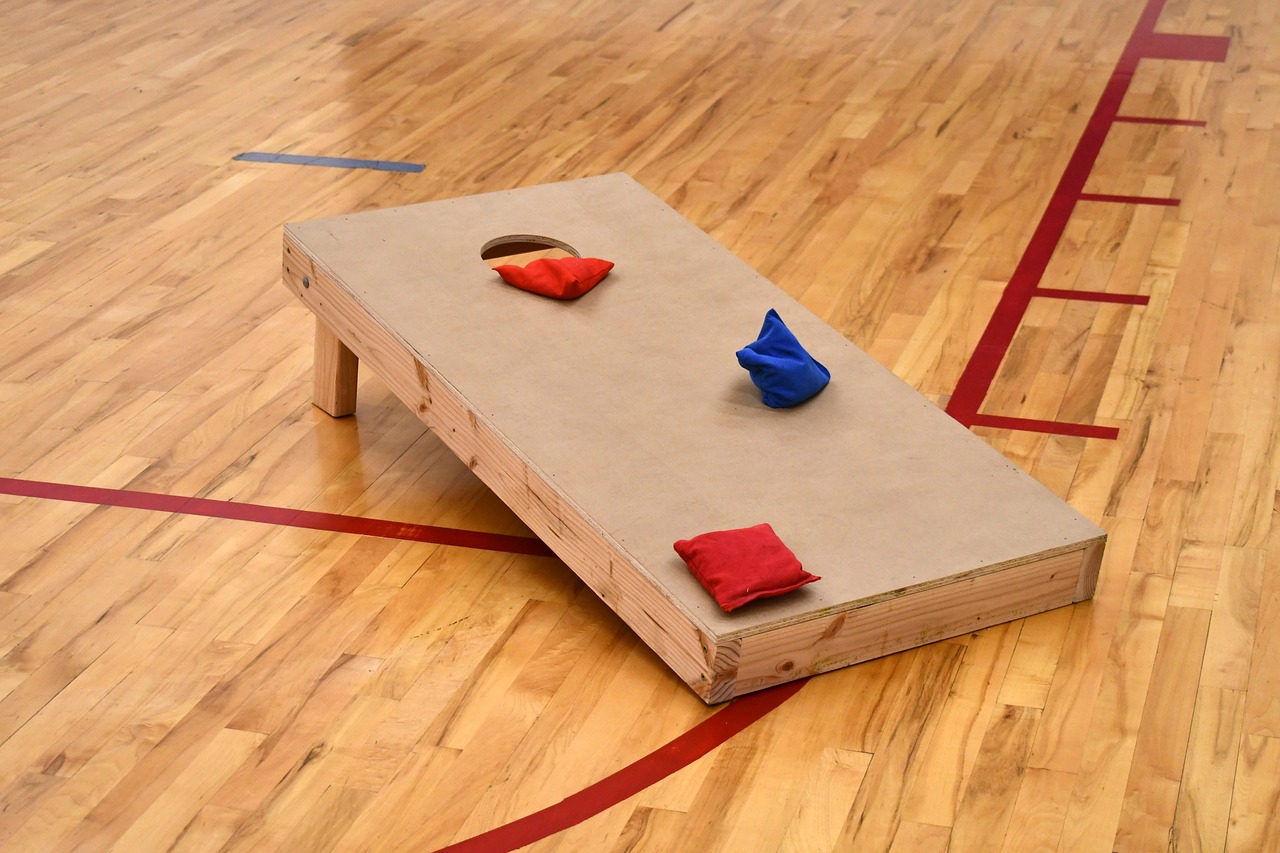There was a study done that may have interesting implications for your Bible students. In the study, two groups of kids were asked to toss bean bags at a target three feet away. After the initial results were recorded, the two groups spent time practicing two different ways for the next three months.

One group kept practicing with the original target. The other group of kids never practiced with the original target, but alternated between practicing with a target that was closer and one that was farther away than the original three feet. At the end of the practice period, the students were asked to repeat the initial experiment…tossing a bean bag at a target three feet away.
The results? The group that never practiced with the test target at three feet away did significantly better than the group that practiced with the actual three feet distant target. Why?
The group with varied targets was exposed to productive struggle and their brains responded by changing in significant ways that increased their connections’ speed and strength significantly. The productive struggle they had experienced for three months had literally changed the structure of their brains!
Research shows productive struggle produces myelin in the brain. Brains with more myelin have connections that are significantly faster and stronger than brains with less myelin.
So how can faster and stronger brain functions impact a young person’s faith? There is no research on the topic, but one might assume the link between faith and behavior could be stronger in day to day life with faster processing abilities.
Why? Young people are asked to make many choices in the moment. They may only have a few seconds to decide whether they should take that illegal substance or have sex with their friend. Slower processing speeds may mean young people are relying on emotions more than concrete reasoning. Those few extra bits of processing speed might give their brains the time needed to remember the choice is something about which God has commanded them to respond in a specific way. That memory can help them choose to walk away from the temptation.
There are several things you can do to provide productive struggle for your Bible students.
- Providing repeated practice of key principles and commands in the Bible. Repetition helps move information from short to long term memory, making it easier to retrieve quickly. Continually asking students to provide key biblical concepts, principles and commands in different ways can give them some of the added practice they need.
- Giving them a variety of ways to practice what they are learning. Bible games, service projects, faith sharing opportunities, scenarios and more can give students practice in using what they are learning in different settings. Changing things up in how they practice what they are learning about how God wants them to live their lives will encourage the brain to build more connections between potential life scenarios and what they have learned in scripture. These new pathways will make it easier for them to connect a new or practiced situation to what God wants them to do.
- Continuing to review previously learned biblical concepts, applications and commands. Even if students appear to have mastered a previous concept, it is important to regularly revisit those concepts. Just because a student understood something a month or a year ago, doesn’t mean that information won’t fade if it isn’t retrieved and rehearsed on a regular basis.
- Providing regular short practice sessions. Students will remember and be able to use information that is worked with in regular short sessions more than they will that received in one long session. In other words, Bible students will retain and be able to retrieve and use information from attending Bible classes every week more than they will from attending one all day youth rally, retreat or similar event. Those events still have their uses, but don’t expect them to have the same long term impact as regular Bible class attendance.
- Encouraging students to practice spiritual disciplines independently. Secularists have called this type of activity mindfulness, focusing on things like deep breathing and being in the moment – aware of everything around you. While mindfulness may be helpful, spiritual disciplines will provide deeper, richer results than secular mindfulness. Reading the Bible, praying, reflecting on scripture, journaling, walking in God’s creation and more will improve multiple areas of mental, emotional and spiritual health.
It won’t be hard to add these elements to your regular Bible class curriculum, but it will take some intentionality on your part. Once you have found the best ways of providing productive struggle in your Bible curriculum, it should seem natural to supply it for your students on a regular basis.
Productive struggle may sound like an unnecessary fine tuning of your Bible curriculum. If providing it can give even one student the extra processing speed, long term memory of what God wants and neural pathways to make it easier to make godly choices, it will be worth it.
Note: The original study can be found at https://www.ncbi.nih.gov/pub Ed/662537




